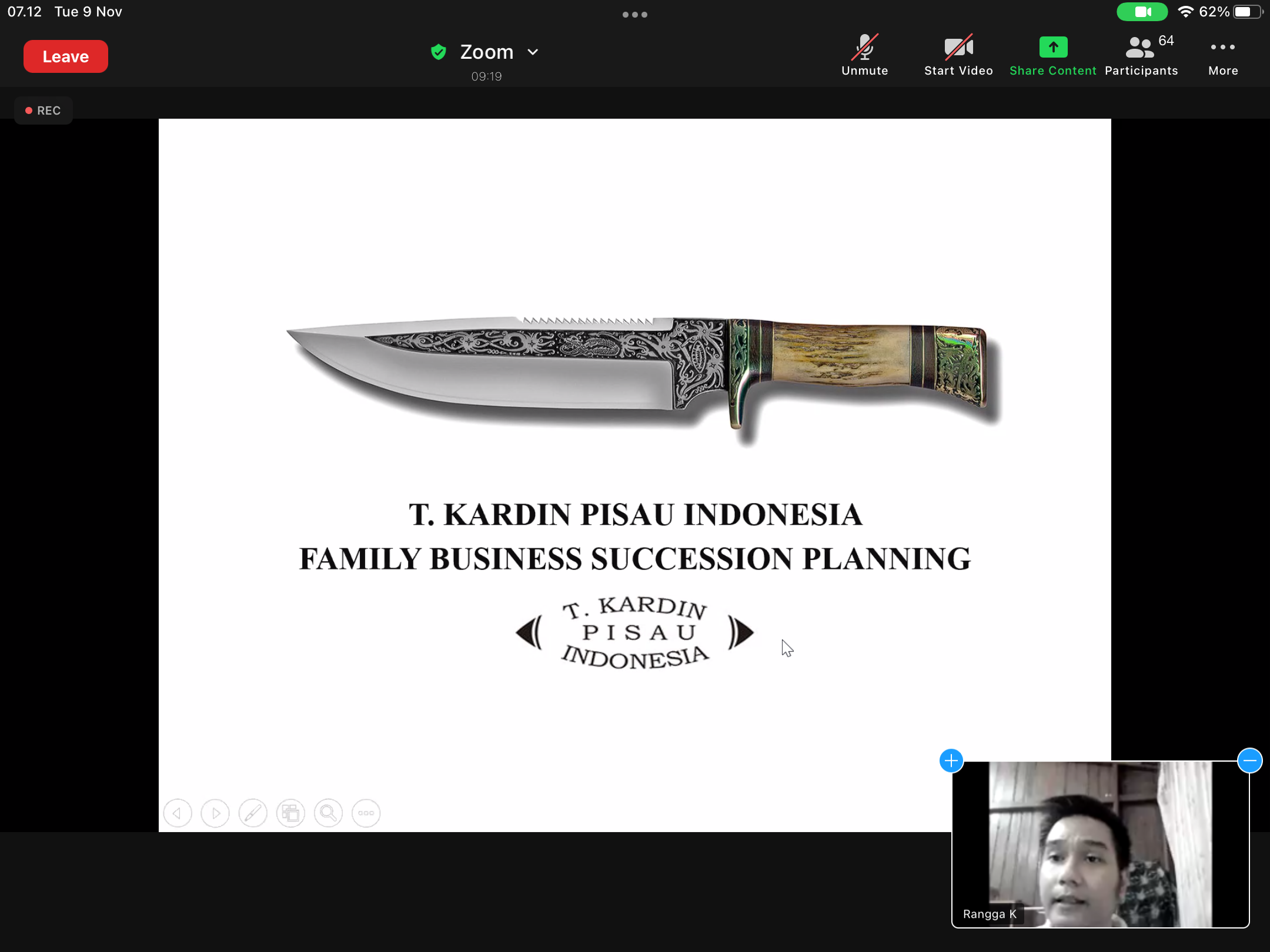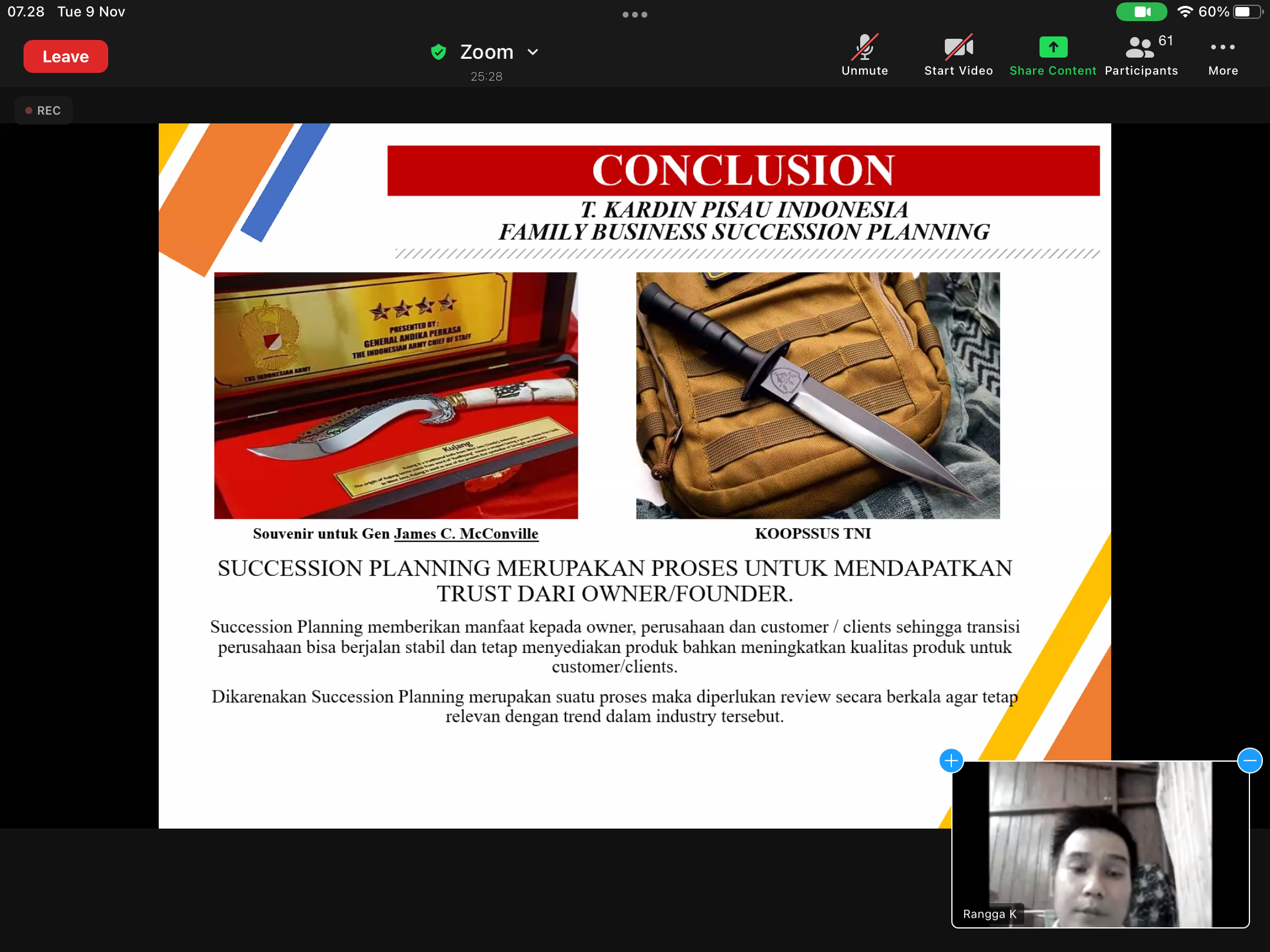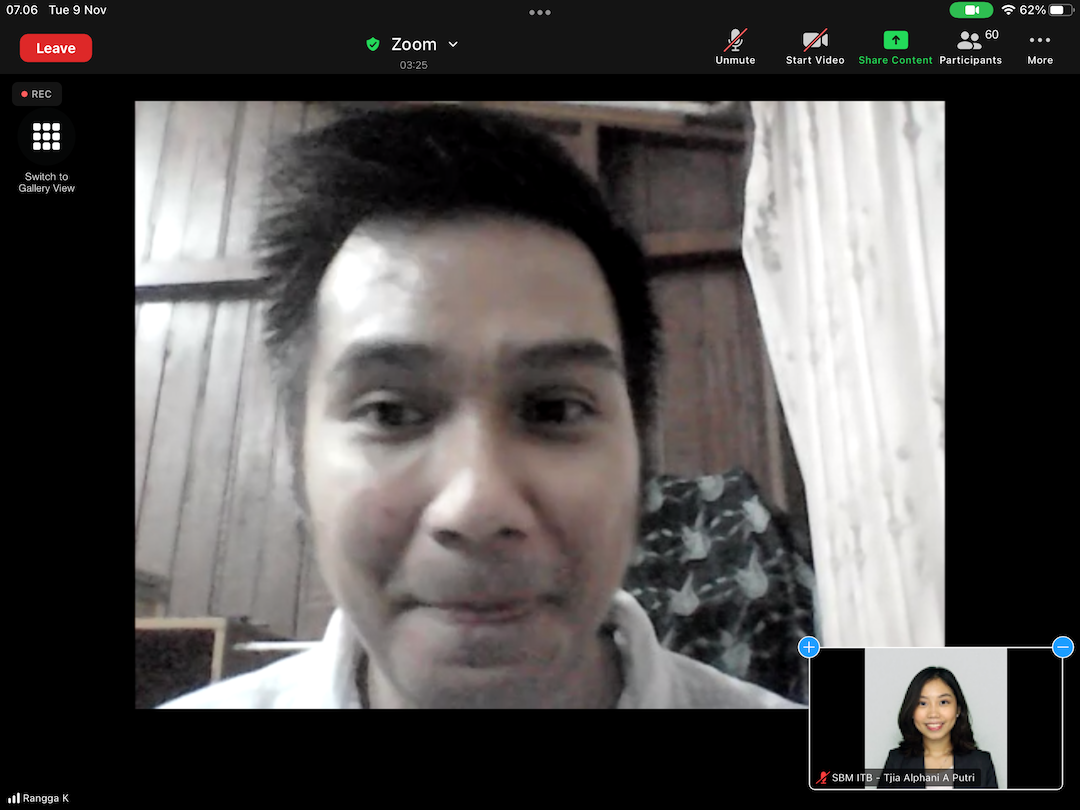MBA ITB invited Ranggakesi Kardin, SH, MBA, as Business Development of the CV family business. T. Kardin Pisau Indonesia to explain the succession planning process in a family business. As a family business running for more than two decades, CV. T. Kardin Knives Indonesia has an interesting and long experience in planning its success as a pioneer of modern knife making in Indonesia.
 “Because succession planning is a process, periodic reviews are needed to keep up with the trends in the industry,” said Rangga.
“Because succession planning is a process, periodic reviews are needed to keep up with the trends in the industry,” said Rangga.
Starting his presentation by providing knowledge about the company, CV. T. Kardin Knives Indonesia, Rangga told the history of the history, advantages, and the conflicts that have been or are being experienced by the company he founded in 1992. He said that because the company is a family business, the company is run with informal governance, so market research is not carried out and relies heavily on the founder figure in marketing products.
Rangga explained that a family business is characterized by a concentration of capital in one person or one family owner, with several other family members involved in the operational management. The role of family, business, and ownership in a family business is often sentimental and complex, especially for founders who will find it hard to accept other people’s ideas.
 To illustrate this more clearly, Rangga provided a three-circle model showing the different identities of family members, often neglected and ended up causing conflict. This conflict has also occurred at CV. T. Kardin Pisau Indonesia in 2015, the company experienced stagnant problems in design innovation, wrong business decisions, and inefficient management. Besides, problems also emerged from other knifemakers with more competitive prices and innovative designs.
To illustrate this more clearly, Rangga provided a three-circle model showing the different identities of family members, often neglected and ended up causing conflict. This conflict has also occurred at CV. T. Kardin Pisau Indonesia in 2015, the company experienced stagnant problems in design innovation, wrong business decisions, and inefficient management. Besides, problems also emerged from other knifemakers with more competitive prices and innovative designs.
It is unfortunate for a company that has been established for decades if not developed seriously. Therefore, with the opportunity for the increasing knife enthusiasts in Indonesia, the rising budget for the Defense Industry annually, and the market potential in the United States that has not been fully explored, CV. T. Kardin Pisau Indonesia makes succession planning to optimize existing potentials for the company’s sustainability. In the same year, in August, T. Kardin Pisau Indonesia carried out its strategy by combining human resources, innovation, and new technology. The company also creates a short and long plan vision and mission, such as improving Standard Operating Procedures (SOPs) and corporate governance, identifying TOWS, and implementing the threats, opportunities, weaknesses, strengths (TOWS) Generic Strategy to survive in the industry.
Closing his presentation with CV’s success story of T. Kardin Pisau Indonesia surviving its downturn, Rangga emphasized that Succession Planning is a process to gain trust from the owner/founder by providing benefits to the owner, company, and customers/clients so that the company’s transition can run stable and continue to provide products and even improve product quality for customers /clients.





